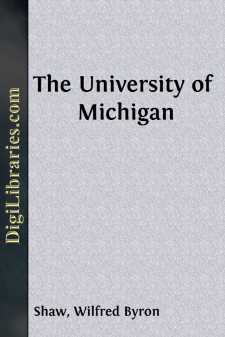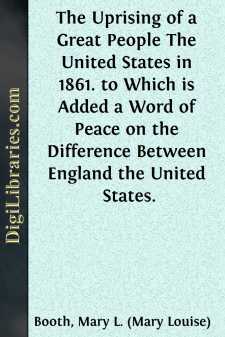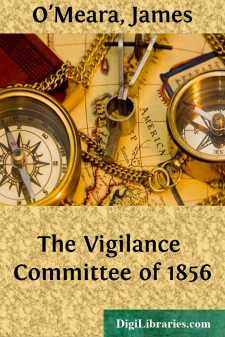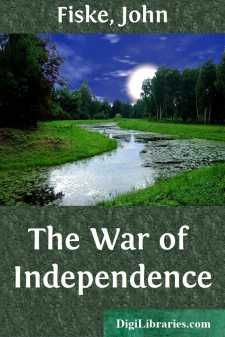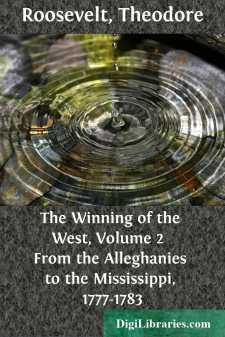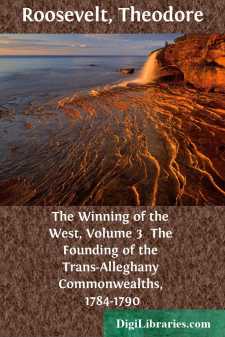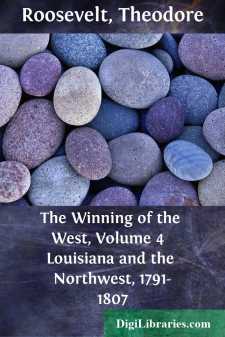History
- Africa 30
- Americas (North Central South West Indies) 50
- Ancient 68
- Asia 58
- Australia & New Zealand 8
- Canada 41
- Caribbean & West Indies 1
- Civilization 20
- Eastern Europe 12
- Europe 310
- Expeditions & Discoveries 60
- General 77
- Historical Geography 1
- Jewish 9
- Latin America 3
- Medieval 8
- Middle East 14
- Military 248
- Revolutionary 8
- Study & Teaching 5
- United States
- Western Europe 56
- World 13
United States Books
Sort by:
PREFACE It has not been the purpose of the author to write a history of the University of Michigan. Several predecessors in this field have done their work so well that another book entirely historical in character might seem superfluous. Rather it is the aim of this volume to furnish a survey—sketching broadly the development of the University, and dwelling upon incidents and personalities that...
more...
CHAPTER I. AMERICAN SLAVERY. If they had not triumphed, do you know who would have gained the victory? Slavery is only a word—a vile word, doubtless, but to which we in time become habituated. To what do we not become habituated? We have stores of indulgence and indifference for the social iniquities which have found their way into the current of cotemporary civilization, and which can invoke...
more...
by:
James O'Meara
Chapter I. Many accounts of the Vigilance Committee of San Francisco have been published, but all of them, so far as I have seen, were from the pen of members of that organization, or else from persons who favored it. As a consequence their accounts of it were either partial, to a greater or less degree, or imperfect otherwise; and much has been omitted as well as misstated and misrepresented...
more...
This is the story of the Virginia Company and only indirectly of the Virginia colony. Those who seek an account of the early years at Jamestown should turn to another number in this same series. Here the focus belongs to the adventurers in England whose hopes gave shape to the settlement at Jamestown, and whose determination brought the colony through the many disappointments of its first years. In...
more...
by:
John Fiske
BIOGRAPHICAL SKETCH. To relate, by way of leading up to this little book, all the previous achievements of its author would—without disrespect to the greater or the less—have somewhat the appearance of putting a very big cart in front of a pony. But no idea could be more mistaken than that which induces people to believe a small book the easiest to write. Easy reading is hard writing; and a...
more...
CHAPTER I OPPOSING CLAIMS International disputes that end in war are not generally questions of absolute right and wrong. They may quite as well be questions of opposing rights. But, when there are rights on both sides; it is usually found that the side which takes the initiative is moved by its national desires as well as by its claims of right. This could hardly be better exemplified than by the...
more...
CHAPTER I. THE SPREAD OF THE ENGLISH-SPEAKING PEOPLES. During the past three centuries the spread of the English-speaking peoples over the world's waste spaces has been not only the most striking feature in the world's history, but also the event of all others most far-reaching in its effects and its importance. The tongue which Bacon feared to use in his writings, lest they should remain...
more...
CHAPTER I. THE WAR IN THE NORTHWEST, 1777-1778. The Tribes Hold Councils at Detroit. In the fall of 1776 it became evident that a formidable Indian war was impending. At Detroit great councils were held by all the northwestern tribes, to whom the Six Nations sent the white belt of peace, that they might cease their feuds and join against the Americans. The later councils were summoned by Henry...
more...
CHAPTER I. THE INRUSH OF SETTLERS, 1784-1787. At the beginning of 1784 peace was a definite fact, and the United States had become one among the nations of the earth; a nation young and lusty in her youth, but as yet loosely knit, and formidable in promise rather than in actual capacity for performance. The Western Frontier. On the western frontier lay vast and fertile vacant spaces; for the Americans...
more...
CHAPTER I. ST. CLAIR'S DEFEAT, 1791. The Westward March of the Backwoodsman. The backwoods folk, the stark hunters and tree-fellers, and the war-worn regulars who fought beside them in the forest, pushed ever westward the frontier of the Republic. Year after year each group of rough settlers and rough soldiers wrought its part in the great epic of wilderness conquest. The people that for one or...
more...


